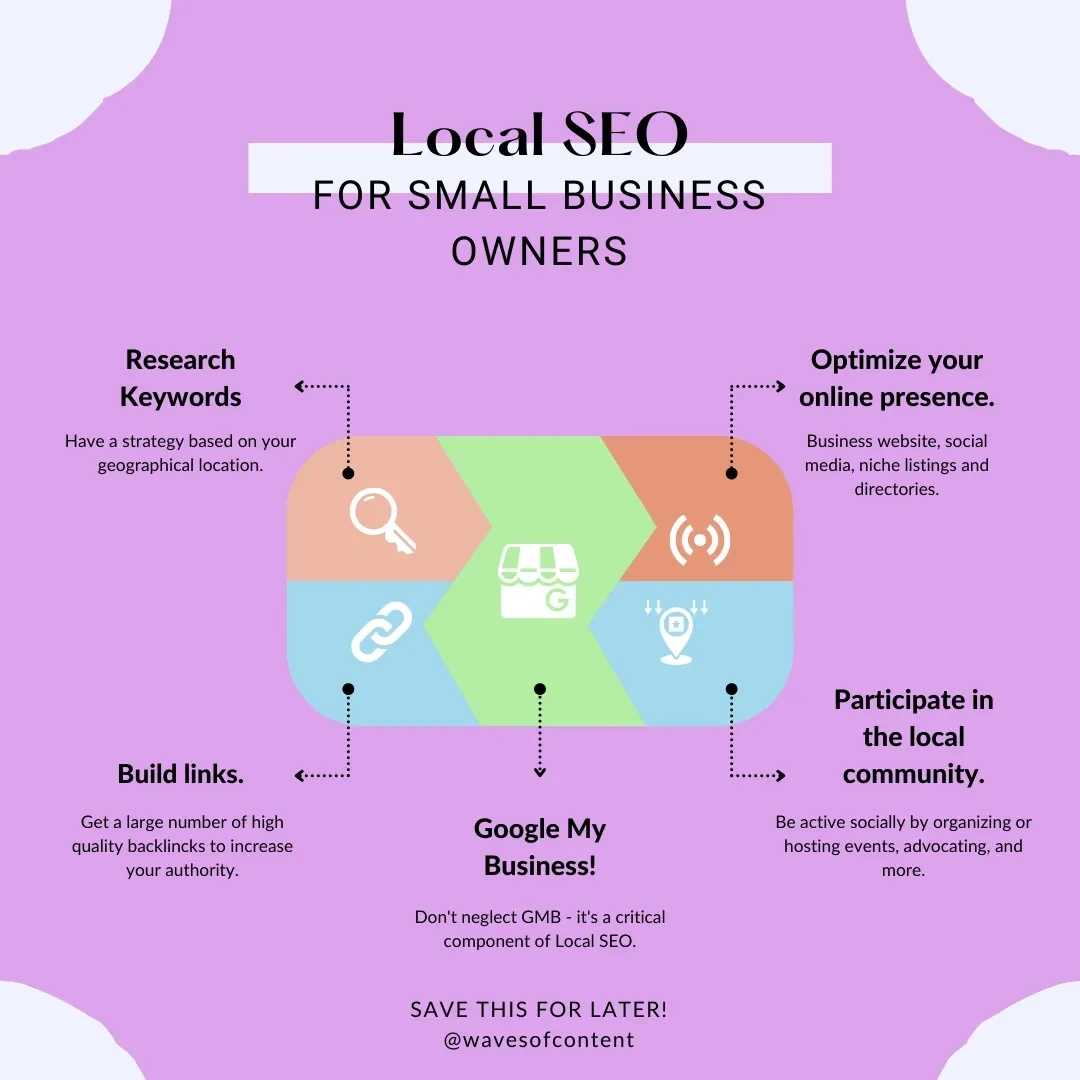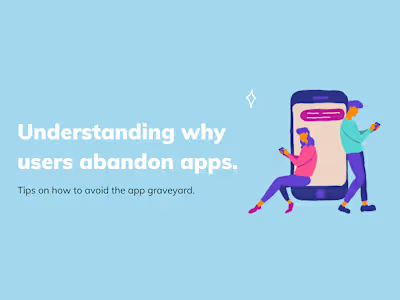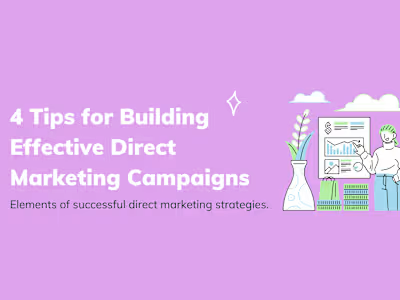Local SEO for Small Business Owners.
Here's an uncomfortable truth—as a small business with no marketing budget, you are nowhere on the map if you are not using Search Engine Optimization (SEO).
SEO is a set of practices that makes your business discoverable on Google.
In other words, SEO brings your business in front of your dream customers when they search online for services like yours.
Relevant stats say:
75% of searchers never look past the first page of search results (HubSpot)
The number one result in Google receives approximately 32% of all clicks (Backlinko)
As a business, to appear as the first result on Google must be one of your goals.
And the best way to reach it is by implementing a Local SEO strategy.
What is Local SEO, and why is it ''local'' and not just SEO?
You can benefit from Local SEO when you run a restaurant, a shop, a manufacturing company, or any other company that provides services in a physical location.
A local SEO strategy helps you rank higher in your specific area, region, or town, so your business will be easy to find by residents and tourists in online searches (SERPs).
How can you improve your Local SEO if you are a newbie to SEO?
Here are some steps you can take for your business without a budget.
Research keywords specific to your geographic location.
People always need services in their area, which explains why 46% of searches mention a location (Google).
The most common phrases people use to find local businesses are ‘’near me’’ and ‘‘type of business, service, or product in X city’’.
Examples:
Fast food near me.
Fast food in Dublin.
Best burgers in Belfast.
You can nail the perfect keywords for your business by brainstorming what words your customers would associate with your business.
After you discover what your clients search for on Google when they need a service like yours, the next step is to optimize everything.
Optimize your online presence
If you want Google to notice your business, your NAPW (name, address, phone number, and website) must be up-to-date across the web.
For example, if you change your phone number or location, remember to change this information on all websites you associate with your business.
Both customers and Google find inconsistent NAPW confusing and unprofessional.
Your business website
Customers expect to find the most accurate information on your business website. So, you must help them find and navigate your content in an easy way.
An enormous but common mistake is neglecting the mobile version of the website since 76% of people who search on smartphones visit a business within a day (Think With Google).
If your website is not meeting usability standards, Google will get your website off the radar. Creating a responsive and mobile-friendly website will help you avoid penalties.
So, if you manage a restaurant, make sure your menu works well on small devices, the images are high-quality, and every detail of your business location is visible.
Social Media Pages
There is no secret that social media plays a crucial SEO role, no matter your business niche.
It helps you:
Keep in touch with your clients.
Invite them to give you their feedback.
Attract them with special offers.
And more, depending on the type of business you run and the channels you choose.
As a small business owner, you lack the time, energy, or money to manage one hundred social platforms. But maintaining an online presence on 2-3 channels has to be part of your marketing strategy.
Find out where your customers spend most of their time and learn how to use those functions to nurture good communication between your business and its customers.
Google Business Profile
Claiming your Google Business Profile listing is a gigantic step for your business.
Huge mistake considering that GBP is an easy and free tool that helps your business get pinned on Google Maps. It works as a social media page but is more rewarding. If your business is authentic, Google will feature it in the sidebar box, known as the local pack.
Staying up-to-date with SEO trends is one thing to include in your marketing efforts. This way, you can stay relevant and ahead of your competitors.
Claim your pages on other websites and directories related to your business, niche, or industry.
Tripadvisor or Yelp if you run a restaurant. Booking or Airbnb if you rent rooms. Angi, if you have a home service website. Ubereats if you deliver food. Etc.
Backlinks are like thumbs-ups for your website.
When your website is rich in relevant and high-quality backlinks, your domain authority (DA) increases, so Search Engines drive organic traffic to your website.
The good news—there are over 500 directories, most of them free.
Be a part of your local community.
One way to become visible in your industry is to be active in your community.
There are many memorable ways to connect with your audience besides social media.
Here are some examples:
Sponsoring an event or hosting another one.
Being an advocate for a cause relevant to your audience.
Engaging with your competitors.
Writing blog posts about your city or industry.
Being featured in a newspaper, local radio, or television (for example, for launching your business or a new service).
The goals are to promote your values and prove that your business belongs there.
You have your business website up and running, social media profiles up to date, and pages on the most relevant websites in your industry. The next step is to be consistent. Optimize often, and you will reach the top of the results.
Wrap up!
SEO is a vast set of practices that help you gain online visibility.
Local SEO is a small fragment of this domain, although impactful, and in which you can take immediate action.
As a small business, you don't have to be an SEO expert and invest tons of money to provide a positive experience for your clients. But investing time and patience in mastering Local SEO will help you avoid missing out on many growth opportunities.

Like this project
Posted Jun 11, 2023
Here's an uncomfortable truth—as a small business with no marketing budget, you are nowhere on the map if you are not using Search Engine Optimization (SEO). I…





